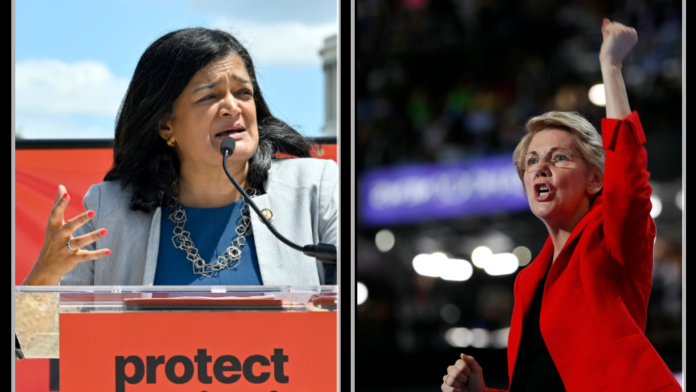SEATTLE — U.S. Rep. Pramila Jayapal and Sen. Elizabeth Warren have introduced the EXPERTS Act, a legislative proposal aimed at curbing corporate influence in the federal regulatory process.
The bill seeks to restore public trust by prioritizing transparency and elevating the voices of subject matter experts over profit-driven corporate interests.
SEE ALSO | Gov. Ferguson says there will be ‘difficult decisions’ as WA revenue forecasted $66M lower
“Many Americans are taught in civics classes that Congress passes a law and that’s it, but the reality is that any major legislation enacted must also be implemented and enforced by the executive branch to become a reality,” Jayapal said. She emphasized the need to protect public interest amid the Trump administration’s efforts to dismantle regulatory systems designed to prioritize public safety. “This bill will level the playing field to ensure that laws passed actually work for the American people.”
Sen. Warren echoed these sentiments, stating, “Giant corporations and their armies of lobbyists shouldn’t get to manipulate how our laws are implemented. While Donald Trump keeps selling away influence over our government, we’re fighting to ensure the rules are being written to help working Americans, not corporate interests.”
The EXPERTS Act proposes several key measures, including codifying Chevron deference, which would require courts to defer to agencies’ reasonable interpretations of their rules. It also aims to establish rulemaking transparency by mandating full disclosure of funding sources for studies submitted during the rulemaking process and requiring public explanations for the withdrawal of rules.
The full list of proposed measures includes:
- Codify Chevron Deference: Require courts to defer to agencies’ reasonable interpretations of their rules that Congress empowered them to issue in order to implement statutes.
- Establish Rulemaking Transparency: Require a full disclosure of who is funding the scientific, economic, and technical studies submitted to agencies during the rulemaking process, mandate a public explanation for the withdrawal of rules, and require the public disclosure of any changes made to a regulatory proposal during the rulemaking process.
- Eliminate Industry-Backed Delays to Rulemaking: Accelerate the rulemaking review process by excluding private parties from using the negotiated rulemaking process.
- Restore the Time Limit for Legal Challenges: Reinstate a 6-year time limit for legal challenges to agency actions, with the clock starting when the action is finalized.
- Empower the Public in the Rulemaking Process: Fine corporations that lie to the government about whether a public interest rule would cost their shareholders, establish an Office of the Public Advocate to serve as an advocate for public interests, and require the government to respond to citizen petitions.
Additionally, the bill seeks to eliminate industry-backed delays by excluding private parties from the negotiated rulemaking process and restoring a six-year time limit for legal challenges to agency actions. It also empowers the public by fining corporations that provide false information about the cost of public interest rules to shareholders and establishing an Office of the Public Advocate.
Rachel Weintraub, Executive Director of the Coalition for Sensible Safeguards, highlighted the urgency of the EXPERTS Act, describing it as a comprehensive blueprint for modernizing and strengthening the regulatory system. “The EXPERTS Act would enhance our government’s ability to deliver results for workers, consumers, public health, and our environment,” she said.
Lisa Gilbert, Co-President of Public Citizen and CSS Co-Chair, called the EXPERTS Act “the marquee legislation to improve our regulatory system.” She emphasized its role in addressing corporate capture of the rulemaking process and urged swift passage in both chambers of Congress.






